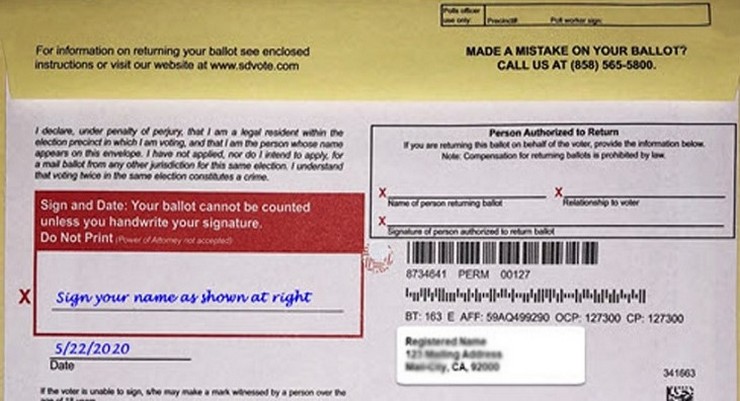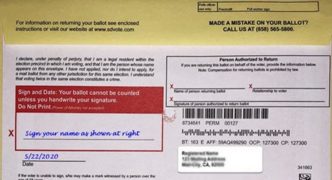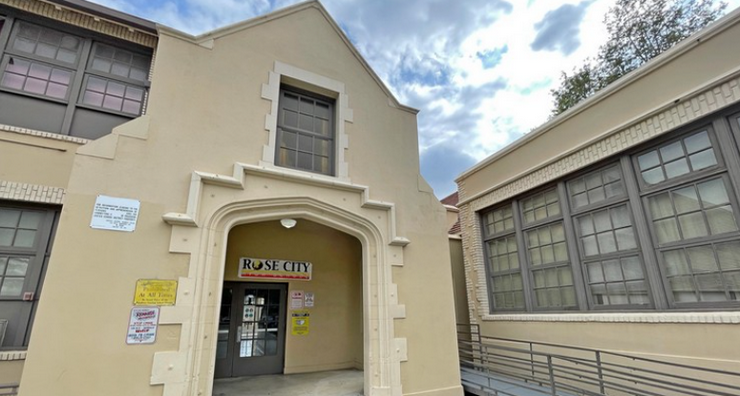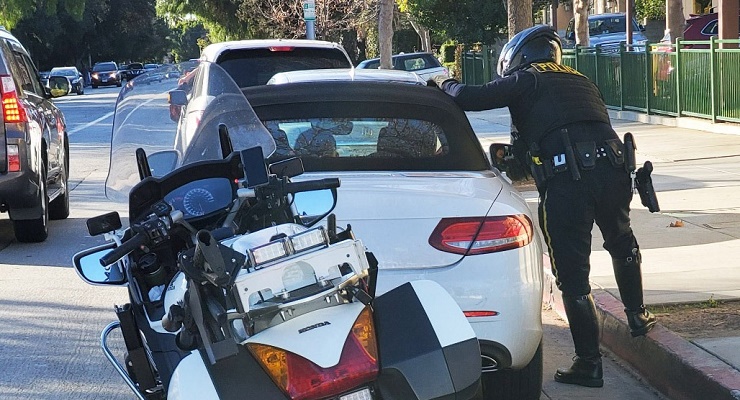
During an especially emotionally charged election season, Caltech researchers have been working to provide the public with unbiased data on issues related to elections and the voting process, from the security of mail-in ballots and election fraud to political polls and campaign funding.
“We launched the Caltech Science Exchange to help the public make sense of critical scientific issues in the news, especially those issues that tend to be the subject of confusion or controversy,” said Jennifer Torres Siders, Director of Strategy and Community Engagement at Caltech. The website provides reports on topics including Voting and Elections, COVID-19 and Viruses and Earthquakes, with sections covering Genetics, Quantum Science and Engineering, Sustainability and Scientific Practice to come soon.
Caltech Professor of Biology and Bioengineering and chair of Caltech’s Public Understanding of Science Committee Pamela Bjorkman said researchers have a duty to share what they learn.
“It’s crucial that people trust science and understand the scientific issues that affect their lives,” she said upon the announcement of the Science Exchange. “As scientists, we have an opportunity as well as an obligation to help build that trust by engaging the public in our work and our findings.”
The section of the project devoted to Voting and Elections includes subtopics including voting by mail, election fraud, political polls, campaign funding and applying science to improve election security.
“With a faculty that includes experts in political science, history, computational social science, and data science, Caltech brings unique perspective to many of the questions on voters’ minds,” Torres Siders said. “From, ‘What do polls really tell us?’ to ‘Why might we have to wait until after Election Night to know the outcomes of our elections?’”
Another of the items discussed on the site is the particularly timely topic of mail-in voting. All registered voters in California automatically received vote-by-mail ballots this year as a response to the COVID-19 pandemic, prompting questions by some as to the validity of the process.
But Caltech researchers concluded that based on available research, “incidents of mail-in ballot fraud are rare, including in states that have adopted universal vote-by-mail systems,” the Caltech report said. “For example, an analysis of 2016 election data in Oregon identified 10 instances of fraudulent ballots out of 2 million votes cast.”
“Similarly, researchers at Caltech have agreed that while mail-in ballots may be more vulnerable to fraud or tampering than ballots cast in person, security measures minimize those risks,” according to the report.
While documented fraud related to mail-in voting was “negligible,” the possibility of voters’ ballots to not be counted through errors “may be more significant,” according to the Caltech Science Exchange report.
“Votes may be lost because a ballot was received too late, for example, or because of voter error, including overvotes — when a voter makes more selections than allowed in a given contest — and undervotes — when a voter skips a contest altogether,” the report said.
Caltech/MIT Voting Technology Project Co-Director Charles Stewart III identified through his research seven points in the “vote-by mail pipeline” where opportunities for errors are introduced. They include requesting ballot; verification of the mail-in ballot requests; delivery of the ballots; completion of ballots, return of ballots, verification of ballots and tabulation of ballots.
To combat problems, “Election officials have implemented a number of safeguards to protect the mail-in voting process,” the report stated. “These include identity and signature verification, bar codes on ballot envelopes that allow voters to know whether their ballot has been received, ballot tracking through the U.S. Postal Service, and post-election audits, among other measures.”
While the Caltech Science Exchange is relatively new, the motivation behind it is not, Caltech Provost and Professor of Chemistry and Chemical Engineering David Tirrel said.
“The Institute has a long history of bridging fundamental research to the needs of the day,” he said. “Today, there is a pressing need for clear, credible information on science and engineering, and we are pleased to provide this platform for informed scientific discussion.”
More information on elections and voting from the Caltech Science Exchange is available online at scienceexchange.caltech.edu/
See also:
Caltech Launches New Site to Explain Science Topics














 0 comments
0 comments


